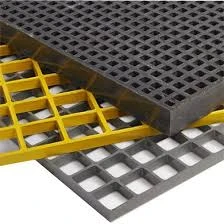loading...
- No. 9, Xingyuan South Street, Dongwaihuan Road, Zaoqiang County, Hengshui, Hebei, China
- admin@zjcomposites.com
- +86 15097380338
- Welcome to visit our website!
Composite Material Pressure Vessel Design for Enhanced Performance and Safety
Understanding FRP Pressure Vessel Tanks A Comprehensive Overview
Fiber Reinforced Polymer (FRP) pressure vessels are increasingly becoming a critical component in various industrial applications due to their unique combination of strength, lightweight, and corrosion resistance. As industries such as oil and gas, chemical processing, and water treatment seek efficient and durable solutions for their storage and transport needs, the demand for FRP pressure vessel tanks continues to grow.
What are FRP Pressure Vessel Tanks?
FRP pressure vessel tanks are composite structures made from a polymer matrix reinforced with fibers, typically glass or carbon. This innovative construction technique allows FRP vessels to withstand high pressure and extreme environmental conditions while being significantly lighter than traditional materials like steel. The specific reinforcement used—glass fibers for greater rigidity and carbon fibers for enhanced strength—provides varying benefits depending on the application requirements.
Advantages of FRP Pressure Vessel Tanks
1. Corrosion Resistance One of the key advantages of FRP tanks is their ability to resist corrosion from chemicals and environmental conditions. Unlike metal tanks, which can suffer from rust and degradation over time, FRP tanks remain unaffected, making them ideal for storing corrosive substances.
2. Lightweight FRP pressure vessels are substantially lighter than their steel counterparts. This reduction in weight leads to easier transportation and installation, which can significantly lower overall project costs, especially in remote locations.
3. High Strength-to-Weight Ratio The strength provided by the fiber reinforcement allows FRP tanks to handle high pressures without the bulk associated with traditional materials. This strength-to-weight ratio is particularly beneficial in applications requiring efficient space utilization.
4. Thermal Insulation FRP materials offer excellent thermal insulation properties. This characteristic is crucial in maintaining the temperature of stored contents, especially in industries where temperature-controlled environments are essential.
5. Design Flexibility FRP pressure vessels can be custom-designed to meet specific requirements for size, shape, and pressure ratings. This flexibility allows manufacturers to create bespoke solutions tailored to unique industrial needs.
Applications of FRP Pressure Vessel Tanks
frp pressure vessel tank

FRP pressure vessel tanks find applications in various sectors
- Chemical Processing They are widely used for storing corrosive chemicals and reactive substances, where traditional materials would fail. - Water and Wastewater Treatment FRP tanks are employed in systems designed for water treatment, storing chemicals like chlorine and ozone which are critical to the purification process.
- Oil and Gas In the oil and gas industry, FRP tanks serve to store hydrocarbons and other materials under pressure, reducing risks associated with corrosion and weight.
- Food and Beverage The food industry also benefits from FRP tanks for bulk storage of ingredients, given their non-reactive nature and compliance with food safety standards.
Challenges and Considerations
Despite the numerous advantages, there are challenges associated with the use of FRP pressure vessel tanks. They can be more expensive upfront compared to traditional materials. Additionally, the manufacturing process requires skilled labor and specialized equipment to ensure structural integrity and performance standards.
Also, while FRP pressure vessels have a long lifespan, they may not be suitable for extreme temperature variations or certain types of loading conditions, making thorough analysis during the design phase crucial.
Conclusion
FRP pressure vessel tanks represent a significant advancement in materials engineering, providing a solution that meets the needs of modern industry while addressing the limitations of conventional materials. With their advantages in corrosion resistance, weight, strength, and customizability, FRP tanks are poised to play an essential role in a wide range of applications.
As technology continues to develop, it is essential for industries to stay informed about the evolving capabilities of FRP pressure vessels. By understanding their benefits and limitations, businesses can make informed decisions that enhance efficiency, safety, and sustainability in their operations. The future of storage solutions in industrial applications looks promising with the growing adoption of FRP technology.
-
Transform Your Spaces with FRP Grating SolutionsNewsNov.04,2024
-
The Versatility and Strength of FRP RodsNewsNov.04,2024
-
The Excellence of Fiberglass Water TanksNewsNov.04,2024
-
The Benefits of FRP Grating for Your ProjectsNewsNov.04,2024
-
Elevate Your Efficiency with FRP Pressure VesselsNewsNov.04,2024
-
Welcome to the World of FRP Pressure VesselsNewsOct.12,2024
-
Unveiling the Future of Filtration: Why FRP Filter Vessels are a Game ChangerNewsOct.12,2024
